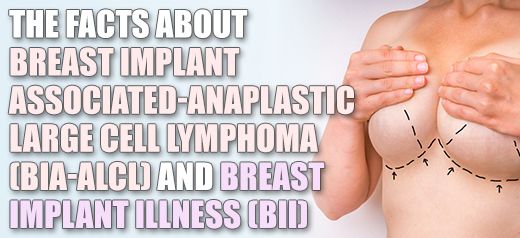Breast Implant safety information – the facts and myths concerning BIA-ALCL and BII

Following the airing of the Dispatches programme last night our patients may be concerned about safety issues relating to their breast implants.
The TV programme dealt with two issues that are quite separate, but which appeared to be interwoven and would suggest significant new concerns about the safety of implants. However, this is not the case based on latest scientific evidence and current guidance from The British Association of Aesthetic Plastic Surgeons (BAAPS) and The Medicines and Healthcare products Regulatory Agency (MHRA), UK.
We recognize that given the heightened media attention and history of breast implant scandals over the last 10 years that patients may be alarmed. Therefore, the information below sets out the current advice with links to official BAAPS patient information pages.
The two issues discussed on Channel 4 Dispatches programme were the emergence of a possible new disease entity called Breast Implant Illness (BII) and a new cancer related to Breast Implant Associated Anaplastic Large Cell Lymphoma (BIA-ALCL). Below, each one is discussed in turn.
Breast Implant Capsules Ananplastic Large Cell Lymphoma (BIA-ALCL)
Over the last few years, surgeons have become aware of and studied a known link between breast implants and this relatively new condition called BIA-ALCL. It was first reported in the UK in 2012 and has been recognized as a new disease by The World Health Organisation (WHO) since 2016. The risk of developing BIA-ALCL is still not accurately known because it is a relatively new disease. It is now thought in the UK to be around 1:24,000. To put this into context the risk rates for other commonly occurring cancers are; breast (1:8), Prostate (1:12), bowel (1:25), Non-Hodgkin’s Lymphoma (1:50).
BIL-ALCL is not a cancer of the breast tissue. It is a very rare type of lymphoma which can develop in the fluid and capsule around the breast and is usually eminently treatable. The capsule is the internal scar that naturally grows around every foreign body inserted into the body such as a breast implant. This capsule is effectively the body’s normal and natural way of internally walling off something that cannot be removed using its own immune system. Whilst the majority of these capsules are soft and therefore unnoticeable to the patient, around 10% of all patients with implants will develop a thicker capsule. This can be both uncomfortable and also make the implant feel firm, hard or painful. This is known as a capsular contracture (thickening and tightening) and is perfectly harmless but may require treatment if causing pain and discomfort or distorting the shape of the implant. There is currently no evidence for a correlation between BIA-ALCL and the degree of breast implant capsule formation.
The current advice from BAAPS to patients with any new symptoms of breast swelling or pain is to contact their surgeon for specific advice and guidance. BIA-ALCL can be diagnosed by aspirating fluid from the space between the breast implant and the capsule. This is done under ultrasound control. The fluid is sent to the lab for detection of specific markers (CD-30/ALK levels). This can only be done if there is a significant amount of fluid present around the implant, which is not always the case. At present there is no indication for routine ultrasound screening of asymptomatic patients with breast implants.
BIA-ALCL appears to occur much more frequently in textured breast implants as opposed to smooth walled implants. The majority of implants used in Europe and the UK over the past 25 years have been textured. The move away from smooth implants was due to the high incidence of capsular thickening and contracture in smooth implants, and to avoid associated higher rate of problems and revision surgery.
Despite the naming of two manufacturers on the TV programme, there is no current evidence to suggest that any particular make of implant has a higher risk than any other.
Any patient with symptom change in terms of a painful or swollen breast should however seek guidance from their surgeon. More information is available through: https://baaps.org.uk/_userfiles/pages/files.biaalcl_information_1.pdf
Breast Implant Illness (BII)
Breast Implant Illness (BII) is a term describing a wide range of symptoms experienced by a group of patients that attribute these symptoms to their breast implant surgery. At this stage there is no scientific evidence to confirm this causal link or diagnostic test to show that a patient suffers from such a condition. Research continues in this area to establish if all of the symptoms that patients describe can be brought together into a single diagnosis. Some patients do report that their symptoms improve if their implants are removed but this is not true for all.
More information is available through: https://baaps.org.uk/_userfiles/pages/files/bii_information.pdf





